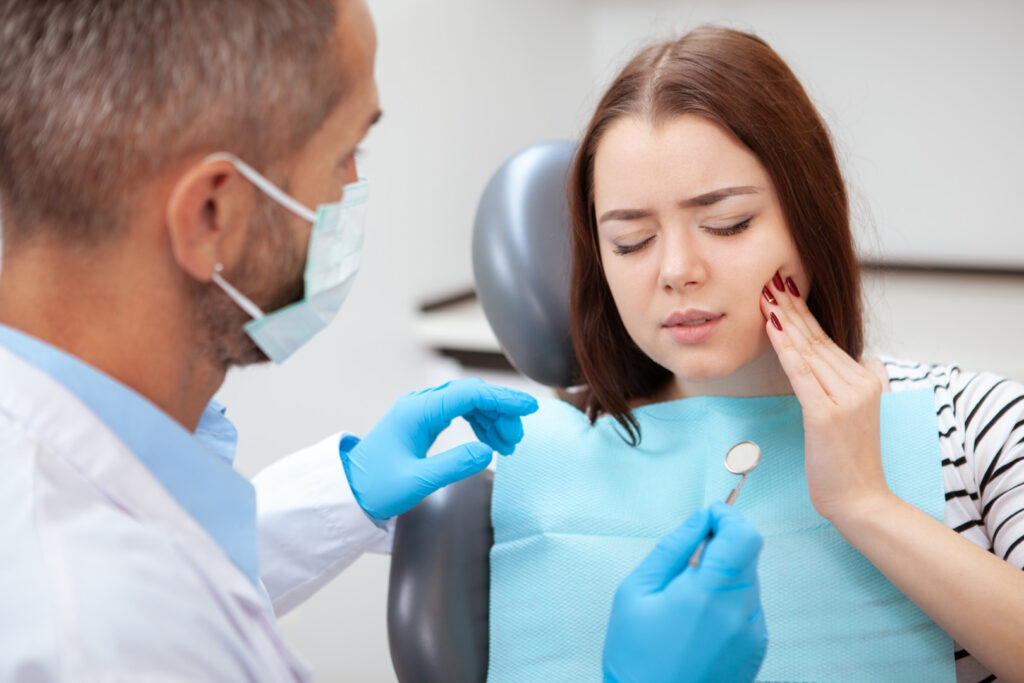Unexpected dental crises can occur and cause excruciating pain and suffering. Residents of South Center may effectively manage dental emergencies by being informed of the most prevalent ones and learning how to address them. In this article, we are going to examine common dental emergency and offer advice on what to do right away.
1. Toothache: A Symptom of Core Problems
Severe toothache is one of the most prevalent dental emergencies and could be a signal to a number of fundamental issues including the decay of teeth, an infection, or periodontal illness. Symptoms include pain, often dull and throbbing — that doesn’t go away; the tooth may also be swollen or sensitive to heat and cold temperatures.
Take immediate action by rinsing your mouth with warm water to clear the region and using dental floss to extract any food particles that may have been lodged. Painkillers available over the counter can help alleviate the discomfort, but keep in mind that aspirin burns easily if it gets directly on teeth or gums. Make an appointment with your dentist right away to identify and address the root cause of your toothache.
2. Chipped or Broken Teeth
In most cases, teeth get chipped or broken because of accidents, falls, or chewing hard objects. When a tooth is straightened too fast, the roots are destroyed, and short stubby teeth with rough edges can cause pain, sensitivity, and sharp cusps that will cut into your tongue or cheek.
3. Knocked-Out Tooth
A tooth that has been completely knocked out of its socket, also called an avulsed tooth is a dental emergency. Rapid response can sometimes mean the tooth can be salvaged and successfully re-implanted.
4. Loose Fillings and Cracked Crowns: Save Damaged Teeth
Loose or lost fillings and crowns: Fillings and crowns can become loose or fall out, leaving the tooth beneath unprotected against further damage and infection. This can create a good amount of pain and make it tough to eat.
5. Abscess: A Type of Infection
A painful infection that occurs when bacteria infect the space around the root of a tooth and gums, causing swelling, severe pain, and even fever; If left untreated, abscesses may cause severe health disorders.
You must brush your teeth 2 times daily and also floss them afterward if you happen to develop tonsil stones. Pain relievers can be taken over the counter to reduce pain. Dental abscesses are a serious health concern and need to be seen by your dentist right away, as they have to properly drain the infection otherwise the infection will get worse.

6. Management of soft tissue injuries: cuts & lacerations
Soft tissue injuries such as cuts or tears to the gums, lips, tongue, or cheeks can occur if you are accident shade get hit while playing sports or bite down on a hard piece of food. These can bleed a lot and be very painful.
What to do: To clean the area of your mouth, rinse your mouth with a mild saline solution. Hold a gauze or clean cloth to the site of bleeding, using pressure for approximately 15-20 minutes. Apply a cold compress externally to the mouth for swelling. If the bleeding does not stop or the injury is more severe, seek medical attention immediately.
Knowledge about and preparation are key, so the following commonly seen South Center dental emergencies have been explained, along with guidance on how to respond to promote an expedient recovery of your dental health. Contact professional dental care immediately in an emergency.

